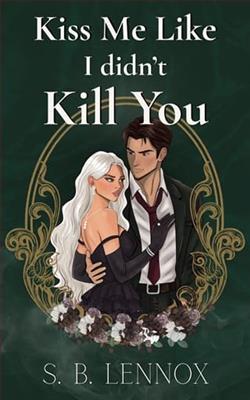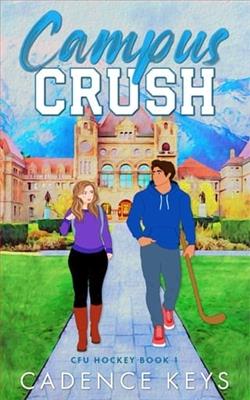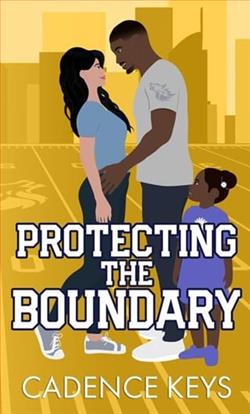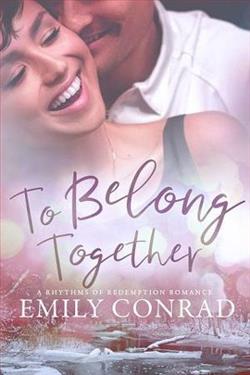Page 97 of Ink & Desire
I look down at the plate before me, but my appetite is non-existent.
“I’m too nervous to eat,” I say.
She leans close to me and whispers. “It’s $1,000 a plate.Try.”
My eyes go wide, and I glance back down at the food. A thousand bucks for a meal? I can’t imagine anything tasting good enough for me to pay that much for dinner. I pick up my fork and knife and cut into the steak on my plate. It’s tender enough that the knife is unnecessary. I manage to eat one bite before the lights dim and a hush falls over the room.
“May I have your attention, please?” a male voice says from hidden speakers.
Looking up from my food, I turn my attention to the stage where a man in a tuxedo stands at a podium, smiling at the crowd.
“I’d like to thank you all for coming tonight. It’s wonderful to see so many familiar faces, as well as some new ones.”
The man goes on to tell the history of the Bradshaw Foundation and the reason for tonight’s gathering. I tune him out, once again searching the darkened room for Avery. I read several articles about the Bradshaw Foundation this morning while Henley packed, and on the drive to the airport. I learned more than I ever wanted to know about people I’ve never met. I also came across several articles chronicling Avery’s injury and recovery. Those had been harder to read. Even though I’ve seen with my own eyes that she’s alive and whole, it broke my heart to see pictures of her lying in a hospital bed as achild, her head shaved with lines and tubes sticking out of her tiny body. I finally had to turn my phone off so I’d stop looking at them and wondering what would have happened if things had gone differently for her.
The room erupts in applause, pulling my attention back to the stage where the man who was speaking is also clapping. He’s turned away from the crowd now, his smiling face expectant as someone walks onto the stage to stand beside him.
The ache in my chest at seeing Avery standing there is enough to steal my breath. Her hair is styled in subtle waves and her deep purple dress hugs her curves just enough to hint at what’s under it, but not enough to be indecent. She looks so beautiful it hurts. A deep pang of regret hits me hard. I feel Henley’s hand on my arm, squeezing.
“I know,” I whisper, unable to look away from Avery.
I watch as she approaches the podium and takes a deep breath, looking out over the crowd. I will her to look my way—to see me—but the bright lights that shine down on her probably make it impossible to see individual faces. Then she begins to speak.
“Good evening,” she says, smiling.
“I want to start by thanking you all for coming tonight. This event has grown far beyond anything we ever expected. I see a lot of familiar faces tonight. Many of you know my story, but for those of you who don’t, I’d like to share part of it with you.
“I was 11 years old when my whole world changed. A car veered across the center line and hit the car my father and I were in, head-on. My father had just enough time to swerve so that he took the brunt of the impact. That’s the only reason I’m here talking to you tonight, and he’s not. It’s strange to think I’ve lived more of my life without him than I had with him.”
She pauses to take a steadying breath and it takes everything I have not to go pull her off the stage so she won’t have to tell this story to these strangers. I can see what it’s costing her to say the words and it breaks my heart to watch it happen.
“I don't remember much from those days,” she says. “Knowing what I know now about my injury and the accident itself, I think amnesia was a blessing. The scar on the left side of my skull is enough of a reminder of what I endured. The doctors weren't sure I'd survive at first, but they didn’t know how stubborn I can be.” She smiles at the crowd and pauses for a smattering of laughter.
“Even after I survived the initial surgeries, they weren't sure if I'd ever live a normal life. Brain injuries can be tricky. But I was lucky. People have asked me over the years how I did it. How did I keep going? How was I able to prove the doctors wrong and make such a miraculous recovery? But I don’t have a great answer for them. I wasn't more deserving than any of the thousands of kids like me who don't recover and go on to live a normal, full life. I didn’t work harder than them. I didn’thave any special tricks up my sleeve. I was lucky. That's all.
“I was lucky that first responders got to the accident site as quickly as they did. I was lucky to be close to a hospital with the best neurosurgery team on the east coast. I was lucky to have the best health insurance money could buy. I was lucky to have a mom who could be beside me and who fought for me to have the best care possible. I was lucky she was able to hold my hand through all of it. And I was lucky enough that she could afford that care and that time.”
She looks down at a woman in the crowd and smiles. I follow her gaze and see a petite, dark-haired woman dabbing at her eyes with a tissue as she looks up at Avery with pride. Several of the women in the crowd are wiping at tears as well.
“But not everyone is so lucky,” Avery continues. “Not everyone can afford to pay for the kind of care required for surgeries, hospital stays, physical therapy, extended rehabilitation, and so much more. And even if insurance pays for those things, kids are often going through them alone because their parents can't afford to stop working to be there for their children during one of the hardest times of their life.
“I was lucky to be born into privilege and wealth. And so were most of the people in this room. We’re all fortunate enough that when something catastrophic happens, money is the last thing on our minds. We’re able to focus solely on getting well. That’s not a luxury mostcan afford. So, now I'm asking you to join me in giving some of that back to help those who aren't as lucky as we are. Your donations help families during the darkest times of their lives. Money shouldn’t be what keeps someone from recovering after these horrific injuries. Lack of resources shouldn’t hold anyone back from a chance at a full, meaningful life. Healthcare professionals are working tirelessly to save the lives of people with traumatic brain injuries. Let’s do what we can to help them.”
She takes a small step back from the podium, nodding to the crowd. “Thank you.”
The crowd erupts in applause and several people rise to their feet, including me. I try to keep Avery in my sights, but once she climbs down from the raised stage, I lose her in the sea of people. I try to remember where her mother was seated so I can find her later when all this dies down. Even after most of the people sit back down, I stand there until Henley grabs my hand and yanks me back into my chair.
“Wait until after dinner,” she whispers. “You’ll get a chance to talk to her then.”
I nod, fighting against the urge to walk over there now and beg her to forgive me. If I thought it would work, I’d do it in a heartbeat. But I don’t think Avery would appreciate being made into a spectacle. Especially not after spilling her guts to a roomful of people the way she just did. So, I take Henley’s advice and wait.
Chapter 39
Avery
I make my way back to the table and allow my mother and Cass to hug me before taking my seat. I’ve told a version of that story every year to a roomful of mostly strangers for almost a decade. But it doesn’t get any easier. I hate reliving the trauma of losing my father, losing my autonomy, losing part of myself. But I do it every year because it helps so many people. I can’t deny the good that this gala does for families who don’t have the same resources as mine. It would be selfish not to use my reach to help them, especially after I got another chance. I take a few deep breaths and try to ignore the eyes still on me. They’ll go back to their meals and the open bar soon enough and forget about the girl on the stage. Hopefully after they open their wallets.
“You did great, A,” Cass whispers, squeezing my hand.















